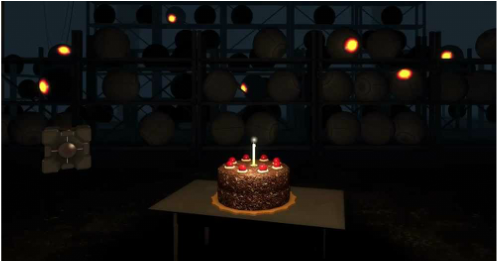All of the characters are entertaining on the surface, and complex and multi-layered underneath, and Sans in particular fascinates me in a way that only two other characters ever have.
One day, a set of lyrics started popping into my head, and I thought they were a great fit for the hopes, fears and secret motives that drive the goofy but enigmatic skeleton's interactions with the protagonist.
So I pulled up Audacity, imported Sans' matter-of-factly-named theme song, added words, and inflicted the result on the internet.
The song contains spoilers for both the pacifist run and the murder run, so make sure you're safely spoiler-proofed before you proceed!
Here are the lyrics, minus Sans' capitalization-averse speaking style:
Come, take my hand
Take a break at my hot dog stand
Although you’re human
It’s my hope that we can be friends
I’ll use my pranks
To read your response and I’ll thank
You not to reset
If you’re the anomaly I think
You’ve seen it before
What lies beyond the Ruins’ door
But guess you never
Found whatever you are looking for
So what do you seek?
Is it home or a family?
You can have those here
And I hope I can help you see
You don’t need to
Use time travel or execute
Your foes to find peace
‘Cause the life that has been given to you
Isn’t so bad
You’ve got friends, good food and bad laughs
I think your new life
Can be better than the one we use to have






 RSS Feed
RSS Feed